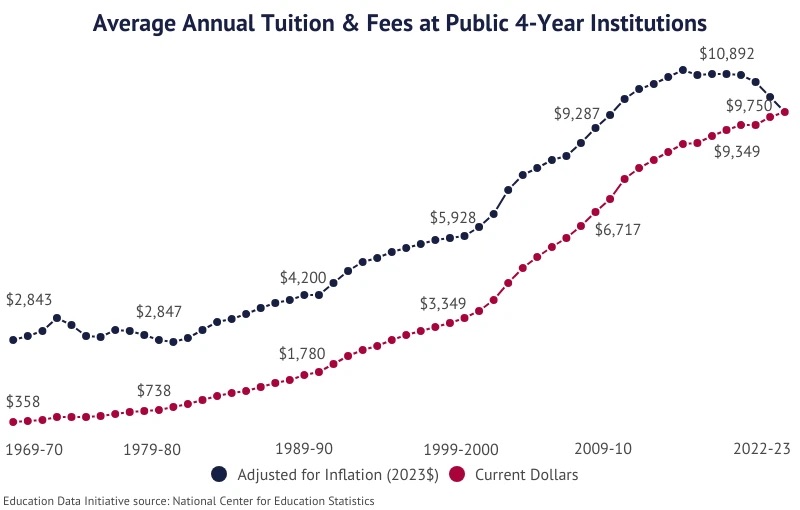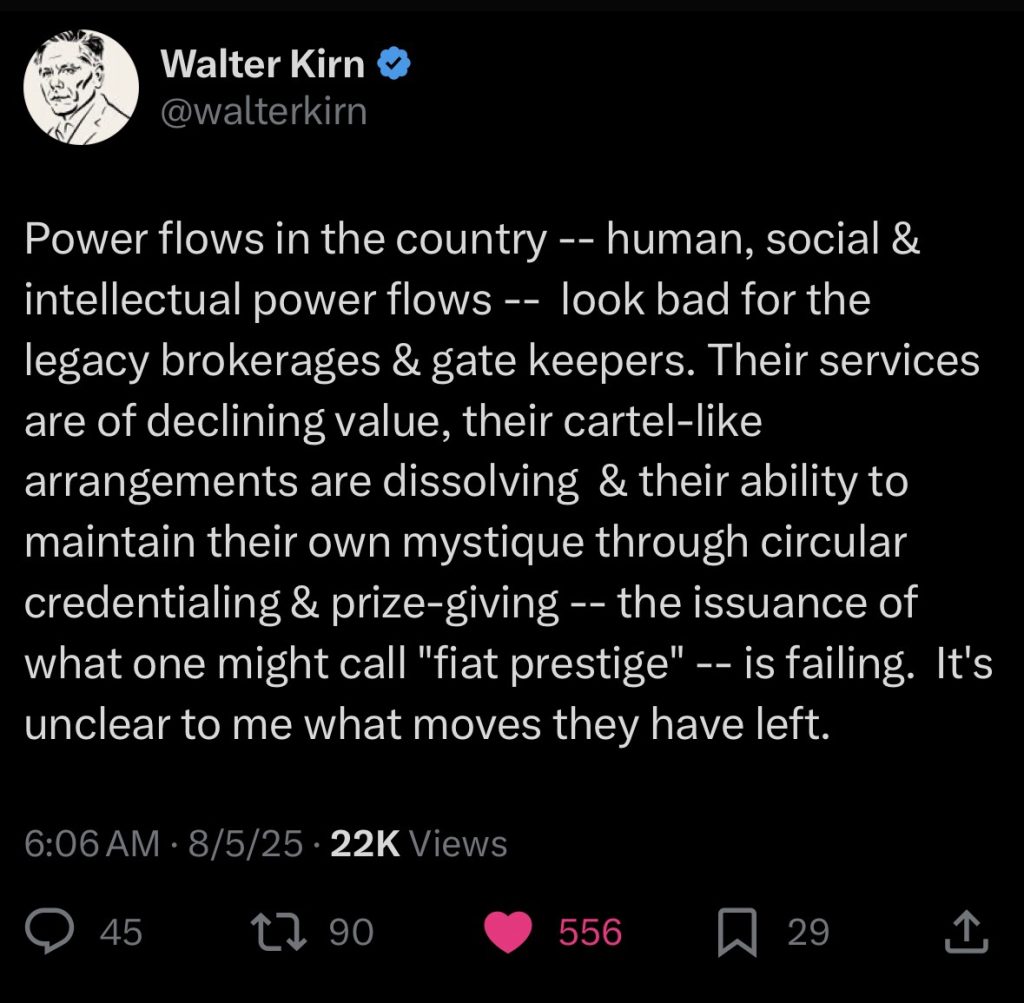I often wonder how it is that venture capital remains so male-dominated when most of the work is the same skill set as a fashion editor or a style writer.
Sure, you occasionally see a man with good taste, and the twinks and gays are obviously the best of breed in both venture and fashion. But the game is basically the same. And yet fashion is dominated by women and venture as an esoteric sub-asset of private equity is very much not.
Let’s compare. Venture is a small, tight-knit group of people, who run on backchannels and gossip, and absolutely everything is determined by being the first person to land the next hot thing.
Now there is an avant garde who sets trends which then get validated with market success. In venture these are the earliest angel investors. In fashion, it’s the indie publishers who slog through the upstarts and pick who to champion.
The angel investor hopes their deal will go to later stage investors just as the trendsetting editor hopes their designer pick makes it to Vogue. Picking the next “it” thing and riding the wave to fortune is the goal for editor and designer, just as it is for investor and founder.
I personally think my skills are validated just as much being the person to get Mansur Gavriel added to the right boutiques as I am being the first check into Valar Atomics.
I took my bag to a breakfast at a boutique investment bank (you know the one with the summer camp) and happened to be meeting with an investor who loved the bag so much that the founder of their luxury ecommerce investment picked up the bag to stock immediately. Well over a decade later, I still carry that bag almost everyday and so do millions of other women.
Now ask yourself if this next story sounds pretty similar. I sent a direct message on Twitter to a young founder who seemed interesting. He had a quickness to his thought I respected as well as humility that set him apart.
Alas I didn’t like the company he was working on at the time and I didn’t like that he wasn’t its CEO. Sounds like “the food was bad & the portions are so small” sort complaint right? Well, I just thought he was so good he should be the lead in whatever he did next.
The young man had partnered with an experienced elder (which was probably wise for that industry) but the founder was clearly the dynamo in that situation. I told the founder that straight up. He had earned complete candor from me.
We began talking about what he really wanted to build. His intensity was awe inspiring. And his vision was just so crazy that I knew I had to back him. Many phone calls and strategy sessions later I wrote a check. It would take less time than I’d dared dream for others to see what I saw first.
Two years and change later, that young man is the founder and CEO of Valar Atomics which just raised 130 million dollars to make small modular nuclear reactors. Isaiah Taylor may have been a diamond in the rough when we first met, but I knew he’d sparkle in any setting.

To see him now as the jewel in the crowns of many much larger funds and backed by much more impressive and capable people than me feels amazing. I’ll always have the satisfaction of being the first to know he was going to be the next big thing.
And that’s not so very different from helping select the hottest hand bag of the last decade. Like Jeremy Irons’ character in finance classic Margin Call, I know the value of being first.
There are three ways to make a living in this business: be first, be smarter, or cheat.
Now, I don’t cheat. And although I like to think we have some pretty smart people in this building, it sure is a hell of a lot easier to just be first.”
If Isaiah’s work is successful, it will be an awful lot bigger than the hottest handbag. It will materially change the conditions of fueling our lives.
And while I am pretty smart, I knew enough to act first. Because it was a hell of a lot easier to just be first. And if I’m lucky, I’ll carry my bag and own equity in Valar for a long time to come. Read the full story in Bloomberg with a gift link.





